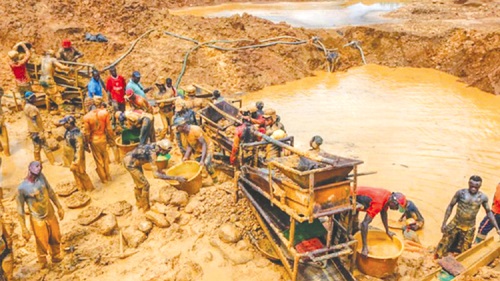Why Ghana’s Galamsey Fight Keeps Failing: Beyond Law Enforcement and Soldiers

Ghana’s long-running battle against illegal small-scale mining, popularly called galamsey, continues to stumble despite repeated political promises and high-profile crackdowns. Analysts say the reasons lie far deeper than law enforcement failure — and that treating galamsey like “armed robbery” misses critical socio-economic realities.
For many, the solution seems straightforward: send in soldiers and police to arrest miners, just as the security agencies deal with robbers. But experts caution that galamsey is not like armed robbery. It is an entrenched community practice with centuries of history, economic significance, and local tolerance that makes enforcement far more complex.
Community Tolerance and History
Unlike robbery, galamsey has been woven into the economic fabric of local communities since at least the 17th century. Many families benefit directly from the practice while the wider environmental destruction — polluted rivers, deforestation, degraded farmlands — is borne by the nation at large. This dynamic mirrors other entrenched practices, such as Ghana’s outdoor markets, which persist despite flouting global food hygiene standards under the FAO/WHO’s Codex Alimentarius.
“Communities often see no wrong in these practices because they are familiar and beneficial at a local level,” one governance analyst explained. “Tolerance, not ignorance, explains why galamsey continues despite awareness of its dangers.”
Why Law Enforcement Alone Fails
This tolerance makes the military-police approach ineffective. Even public education campaigns fall short, since they clash with the perceived benefits of galamsey to struggling communities. It is the same reason why campaigns against child labor on cocoa farms or prostitution struggle — unlike female genital mutilation, which communities more easily reject once informed of the harms.
The Way Forward
Experts argue that solutions must go beyond punitive crackdowns. Both law enforcement and public education can work — but only when redesigned for community-level delivery and grounded in local buy-in.
The government’s much-touted “community mining” policy, for instance, is faltering because these mines are not structured to be both profitable and environmentally sustainable. Without meaningful reforms, communities see little incentive to abandon galamsey.
At the heart of the challenge is what some call Ghana’s “katanomic gap” — the widening disconnect between politics and policy. Politicians make grand commitments, but on the ground, coherent policies that balance livelihoods with environmental stewardship remain scarce.
Until that gap is bridged, Ghana’s fight against galamsey is likely to remain more rhetoric than reality.
www.nsemgh.com

